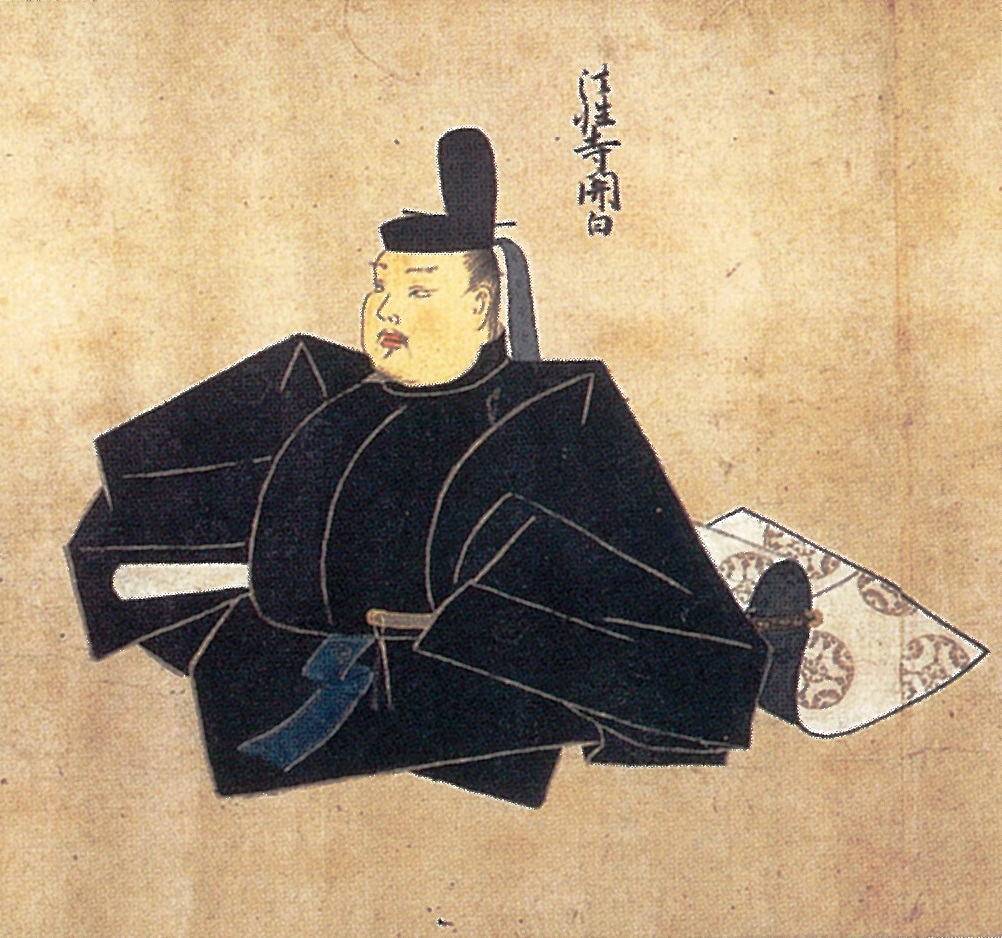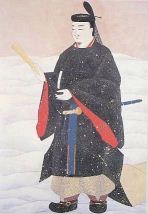|
Fujiwara No Kiyoko
Fujiwara no Kiyoko (藤原 聖子 ; 1122-1182) later Kōkamon'in (皇嘉門院), was an Empress consort of Japan. She was the consort of Emperor Sutoku of Japan. She was the daughter of Fujiwara Tadamichi. In 1156 she ordained as a Buddhist nun and received the Dharma name A Dharma name or Dhamma name is a new name acquired during both lay and monastic Buddhist initiation rituals in Mahayana Buddhism and monastic ordination in Theravada Buddhism (where it is more proper to call it Dhamma or Sangha name). The nam ... Seijōe (清浄恵). In 1164 she renewed her ordination and received the name Rengaku (蓮覚). Notes Fujiwara clan Japanese empresses 1122 births 1182 deaths Emperor Sutoku Japanese Buddhist nuns 12th-century Buddhist nuns {{Japan-royal-stub ... [...More Info...] [...Related Items...] OR: [Wikipedia] [Google] [Baidu] |
Japanese Empresses
The Empress of Japan is the title given to the wife of the Emperor of Japan or a female ruler in her own right. In Japanese, the empress consort is called . The current empress consort is Empress Masako, who ascended the throne with her husband on 1 May 2019. Much like their male counterparts, female rulers who ascend the throne by their birthright are referred to as 天皇 (''tennō''), but can also be referred to as 女性天皇 (''josei tennō'') or 女帝 (''jotei''). ''josei tennō'' refers only to an empress regnant of Japan, and ''jotei'' refers to an empress regnant of any countries. Empresses regnant There were eight female imperial reigns (six female emperors including two who reigned twice) in Japan's early history between 593 and 770, and two more in the early modern period (Edo period). Although there were eight reigning empresses, with only one exception their successors were selected from amongst the males of the paternal Imperial bloodline. After many centuries, ... [...More Info...] [...Related Items...] OR: [Wikipedia] [Google] [Baidu] |
Emperor Sutoku
was the 75th emperor of Japan, Imperial Household Agency (''Kunaichō'') 崇徳天皇 (75)/ref> according to the traditional order of succession. Sutoku's reign spanned the years from 1123 through 1142. Genealogy Before his ascension to the Chrysanthemum Throne, his personal name (his ''imina'') was Akihito (顕仁). Sutoku was the eldest son of Emperor Toba. Some old texts say he was instead the son of Toba's grandfather, Emperor Shirakawa. *Chūgū: Fujiwara no Kiyoko (藤原 聖子) later Kōkamon'in (皇嘉門院), Fujiwara no Tadamichi’s daughter * Hyounosuke-no-Tsubone (兵衛佐局), Minamoto no Masamune's adopted daughter ** First son: Imperial (1140–1162). * Mikawa-dono (三河), Minamoto no Morotsune's daughter ** Fifth Son: Kakue (覚恵; 1151-1184) * Karasuma-no-Tsubone (烏丸局) Events of Sutoku's life * February 25, 1123 (''Hōan 4, 28th day of the 1st month''): In the 16th year of Emperor Toba's reign (鳥羽天皇二十五年), he abdicated; and the succe ... [...More Info...] [...Related Items...] OR: [Wikipedia] [Google] [Baidu] |
Fujiwara Tadamichi
was the eldest son of the Japanese regent (''Sessho and Kampaku, Kampaku'') Fujiwara no Tadazane and a member of the politically powerful Fujiwara clan. He was the father of Fujiwara no Kanefusa and Jien. In the Hōgen Rebellion of 1156, Tadamichi sided with the Emperor Go-Shirakawa, while his brother Fujiwara no Yorinaga sided with Emperor Sutoku. In 1162, he ordained as a Buddhist monk and took the Dharma name Enkan (円観). Marriage and Children Parents *Father: Fujiwara no Yorinaga (藤原 頼長, May 1120 – August 1, 1156) *Mother: Minamoto no Moroko (源師子), daughter of Minamoto no Akifusa (源顕房) Consort and issue: * Wife: Fujiwara no Soshi (藤原宗子, 1190 – 1155), daughter of Fujiwara no Munemichi (藤原宗通) ** Fujiwara no Kiyoko (藤原 聖子 ; 1122-1182), Wife of Emperor Sutoku, first daughter ** ''Third son'' (d.1127) * Wife: Minamoto no Nobuko (源信子), daughter of Minamoto no Norinobu (源国信) ** Konoe Motozane (近衛 基実, 1143 – ... [...More Info...] [...Related Items...] OR: [Wikipedia] [Google] [Baidu] |
Dharma Name
A Dharma name or Dhamma name is a new name acquired during both lay and monastic Buddhist initiation rituals in Mahayana Buddhism and monastic ordination in Theravada Buddhism (where it is more proper to call it Dhamma or Sangha name). The name is traditionally given by a Buddhist monastic, and is given to newly ordained monks, nuns and laity. Dharma names are considered aspirational, not descriptive. Most of the well-known Buddhist teachers are known to have had many different Dharma names in the course of their careers, and often each name represents a stage of their career. For example, Prince Shotoku was also known as Prince Umayado and Prince Kamitsumiya. Shinran's original name was Matsuwakamaru; he was also known as Hanen, Shakku, Zenshin, Gutoku Shinran and Kenshin Daeshi. Nichiren's original name was Zennichi and his Dharma names were Zenshobo Rencho and Rissho Daishi. Similarly, the tradition of various Dharma names was also used by Zen monks, who also used art to ... [...More Info...] [...Related Items...] OR: [Wikipedia] [Google] [Baidu] |
Fujiwara No Tamako
, also known as , was an Empress consort of Emperor Toba of Japan, and mother of Emperor Sutoku and Emperor Go-Shirakawa. She was the eldest daughter of . Life Tamako's father died when she was seven years old, and she was raised by the retired Emperor Shirakawa and his favorite mistress (Gion no Nyogo was Taira no Tadamori's wife also Mother of Taira no Kiyomori). Once she grew up, she was almost engaged to the heir of the regent Fujiwara clan, Fujiwara no Tadamichi, but his father Fujiwara no Tadazane incurred Shirakawa's displeasure by declining the offer due to rumors about Tamako's behavior. In early 1118, with Shirakawa as her godfather, Tamako entered the court of her cousin Emperor Toba. Just a month later, she was invested as Empress Consort ('' chūgū''). In mid-1119 she bore Toba's first child, Prince Akihito. In early 1123, Shirakawa had the five-year-old Prince Akihito ascend to the throne as Emperor Sutoku, and in 1124 Tamako was bestowed the title Taikenmon-in ... [...More Info...] [...Related Items...] OR: [Wikipedia] [Google] [Baidu] |
Fujiwara No Yasuko
Fujiwara no Taishi (藤原 泰子, also read Fujiwara no Yasuko; 1095–1156) was an Empress consort of Japan. She was the consort of Emperor Toba of Japan. Her birth name was Fujiwara no Kunshi (藤原 勲子), her '' ingō'' was Kaya-no-in (高陽院) and her dharma name A Dharma name or Dhamma name is a new name acquired during both lay and monastic Buddhist initiation rituals in Mahayana Buddhism and monastic ordination in Theravada Buddhism (where it is more proper to call it Dhamma or Sangha name). The nam ... upon entering religious orders in 1141 was Shōjōri (清浄理). Notes External links * http://www.guide2womenleaders.com/japan_heads.htm Fujiwara clan Japanese empresses Japanese Buddhist nuns 12th-century Buddhist nuns 1095 births 1156 deaths {{Japan-royal-stub ... [...More Info...] [...Related Items...] OR: [Wikipedia] [Google] [Baidu] |
Fujiwara Clan
was a powerful family of imperial regents in Japan, descending from the Nakatomi clan and, as legend held, through them their ancestral god Ame-no-Koyane. The Fujiwara prospered since the ancient times and dominated the imperial court until the Meiji Restoration in 1868. They held the title of Ason. The abbreviated form is . The 8th century clan history ''Tōshi Kaden'' (藤氏家伝) states the following at the biography of the clan's patriarch, Fujiwara no Kamatari (614–669): "Kamatari, the Inner Palace Minister who was also called ‘Chūrō'',''’ was a man of the Takechi district of Yamato Province. His forebears descended from Ame no Koyane no Mikoto; for generations they had administered the rites for Heaven and Earth, harmonizing the space between men and the gods. Therefore, it was ordered their clan was to be called Ōnakatomi" The clan originated when the founder, Nakatomi no Kamatari (614–669) of the Nakatomi clan, was rewarded by Emperor Tenji with the honori ... [...More Info...] [...Related Items...] OR: [Wikipedia] [Google] [Baidu] |
1122 Births
Eleven or 11 may refer to: *11 (number), the natural number following 10 and preceding 12 * one of the years 11 BC, AD 11, 1911, 2011, or any year ending in 11 Literature * ''Eleven'' (novel), a 2006 novel by British author David Llewellyn *''Eleven'', a 1970 collection of short stories by Patricia Highsmith *''Eleven'', a 2004 children's novel in The Winnie Years by Lauren Myracle *''Eleven'', a 2008 children's novel by Patricia Reilly Giff *''Eleven'', a short story by Sandra Cisneros Music *Eleven (band), an American rock band * Eleven: A Music Company, an Australian record label *Up to eleven, an idiom from popular culture, coined in the movie ''This Is Spinal Tap'' Albums * ''11'' (The Smithereens album), 1989 * ''11'' (Ua album), 1996 * ''11'' (Bryan Adams album), 2008 * ''11'' (Sault album), 2022 * ''Eleven'' (Harry Connick, Jr. album), 1992 * ''Eleven'' (22-Pistepirkko album), 1998 * ''Eleven'' (Sugarcult album), 1999 * ''Eleven'' (B'z album), 2000 * ''Eleven'' (Reamonn ... [...More Info...] [...Related Items...] OR: [Wikipedia] [Google] [Baidu] |
1182 Deaths , synthetic chemical element with atomic number 118
{{Numberdis ...
118 may refer to: *118 (number) *AD 118 *118 BC *118 (TV series) *118 (film) *118 (Tees) Corps Engineer Regiment *118 (Tees) Field Squadron, Royal Engineers See also *11/8 (other) *Oganesson Oganesson is a synthetic chemical element with the symbol Og and atomic number 118. It was first synthesized in 2002 at the Joint Institute for Nuclear Research (JINR) in Dubna, near Moscow, Russia, by a joint team of Russian and American scient ... [...More Info...] [...Related Items...] OR: [Wikipedia] [Google] [Baidu] |
Japanese Buddhist Nuns
Japanese may refer to: * Something from or related to Japan, an island country in East Asia * Japanese language, spoken mainly in Japan * Japanese people, the ethnic group that identifies with Japan through ancestry or culture ** Japanese diaspora, Japanese emigrants and their descendants around the world * Japanese citizens, nationals of Japan under Japanese nationality law ** Foreign-born Japanese, naturalized citizens of Japan * Japanese writing system, consisting of kanji and kana * Japanese cuisine, the food and food culture of Japan See also * List of Japanese people * * Japonica (other) * Japonicum * Japonicus * Japanese studies Japanese studies (Japanese: ) or Japan studies (sometimes Japanology in Europe), is a sub-field of area studies or East Asian studies involved in social sciences and humanities research on Japan. It incorporates fields such as the study of Japanese ... {{disambiguation Language and nationality disambiguation pages ... [...More Info...] [...Related Items...] OR: [Wikipedia] [Google] [Baidu] |


